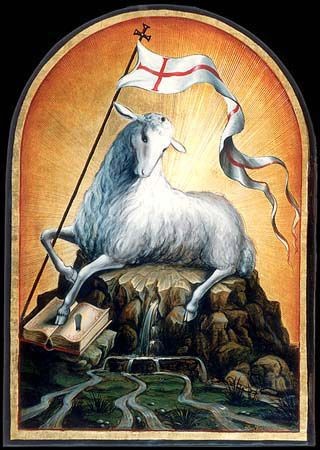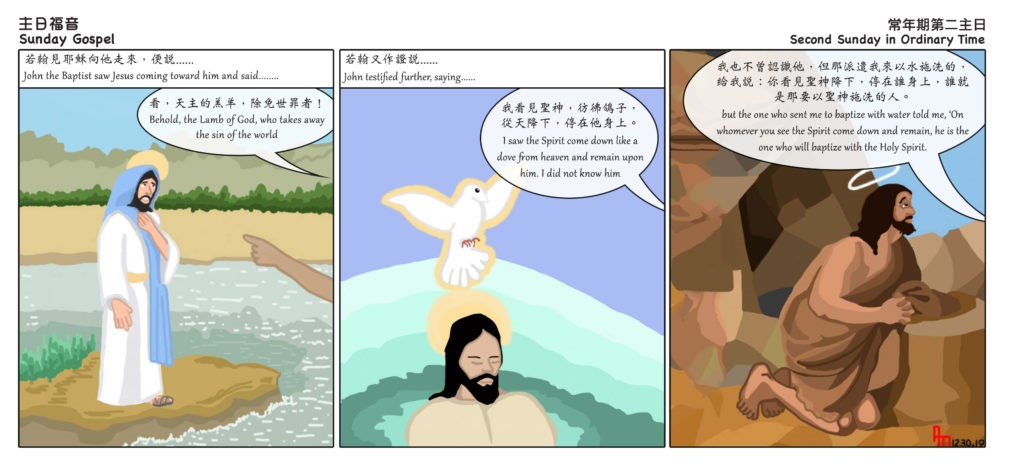JOHN 1:29-34
– Fr. Fernando Armellini SCJ
Claretian Publications Macau
In today’s gospel, seeing Jesus coming towards him, John exclaims: “Behold the lamb of God, behold him who takes away the sin of the world” (v. 29). Why does he define him with a so singular an image? There was never a person in the Old Testament called “lamb of God.” The expression marks the culmination of his long and arduous spiritual journey. It started, in fact, from a complete ignorance. “I did not know him” he exclaims twice (vv. 31,33).
Educated probably among the Essene monks of Qumran, John had assimilated the spirituality of his people. He knew the history and was familiar with the Scriptures. His allusion to the paschal lamb whose blood, placed on the doorposts of the houses in Egypt, had saved their fathers from the slaughter of the exterminating Angel foreshadows the fate of Jesus. One day he would be sacrificed, like a lamb. John the Evangelist has certainly wanted to draw this same symbolism. It was, in fact, the hour in which, in the temple, the priest began to sacrifice the lambs.
There is a second reference to the lamb of God in the book of Isaiah—and every Israelite knew them very well-the Servant of the Lord also mentioned in today’s first reading. Here’s how the prophet describes his move towards death: “He was led like a lamb to the slaughter,…… he bore the sin of many and made intercession for the transgressors” (Is 53:7,12). John applies the imagery to Jesus.
The Baptist has in mind a third biblical call: the lamb is also associated with the sacrifice of Abraham. Isaac, while walking alongside his father to Mount Moriah, asks: “The fire and the wood are here, but where is the lamb for the sacrifice?” Abraham replies: “God himself will provide the lamb” (Gen 22:7-8).
“Behold the Lamb of God!” The Baptist now answers. It is Jesus, given by God to the world to be sacrificed instead of the sinful man deserving punishment. Like Isaac, he is the only son, the beloved, the one who brings the wood to the place of sacrifice. Jesus, like Isaac, also freely gave his life for love.



 Follow
Follow


